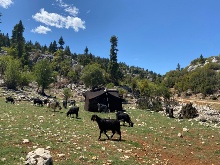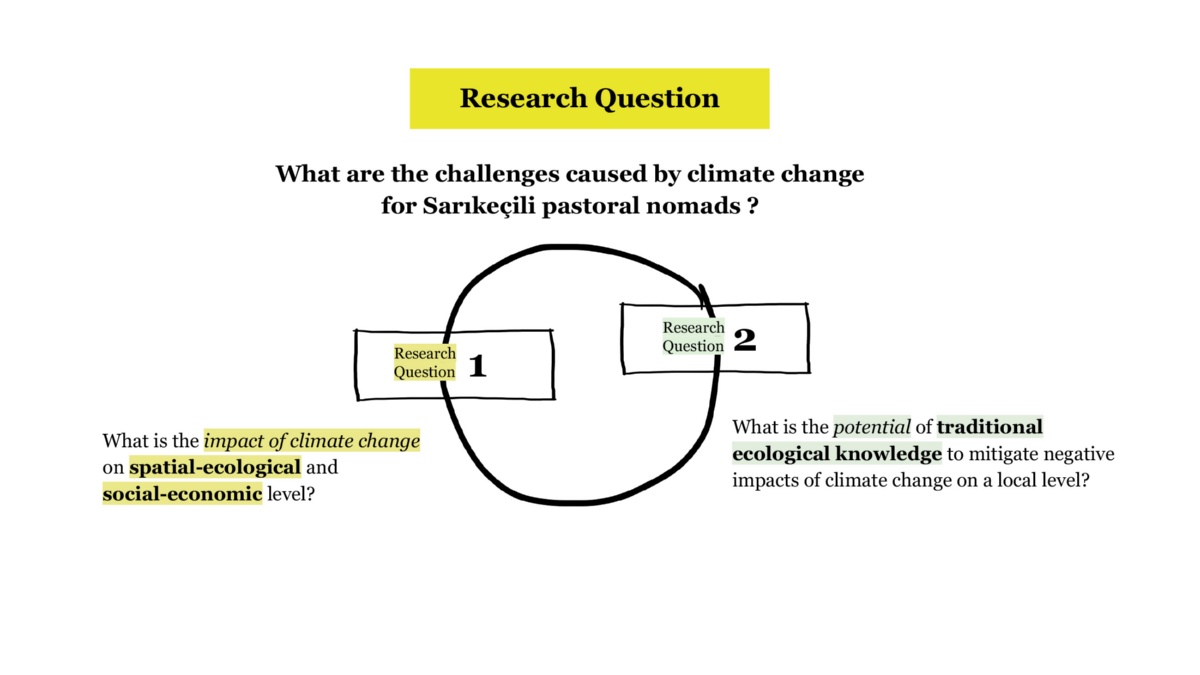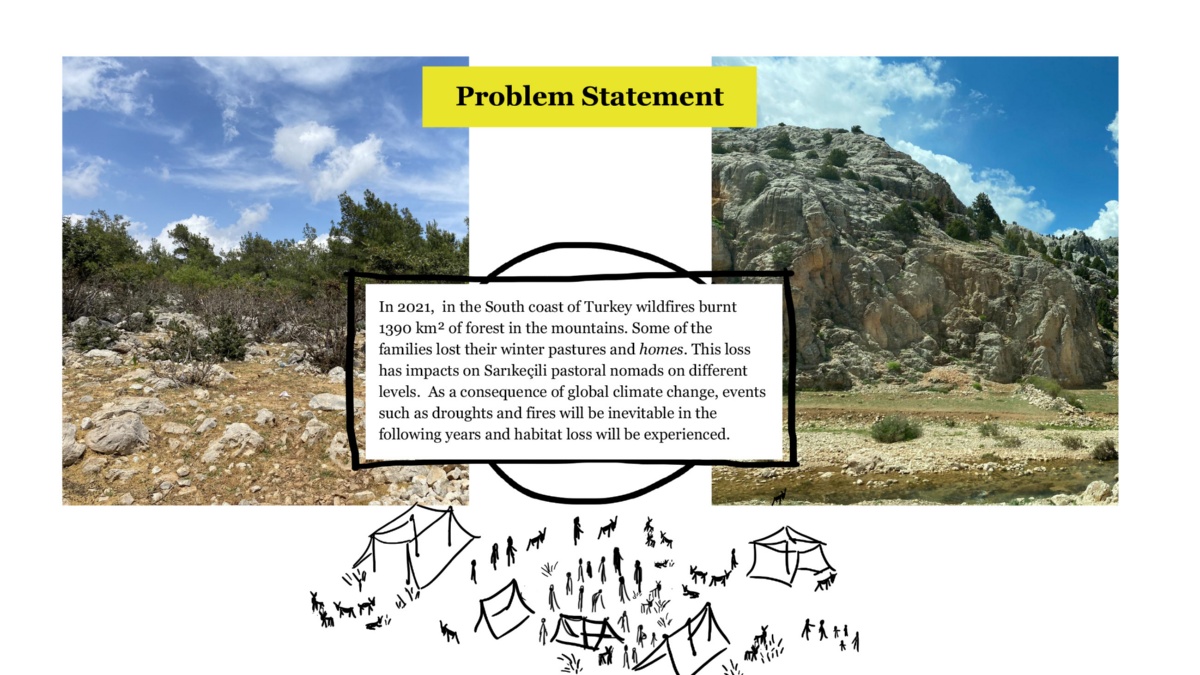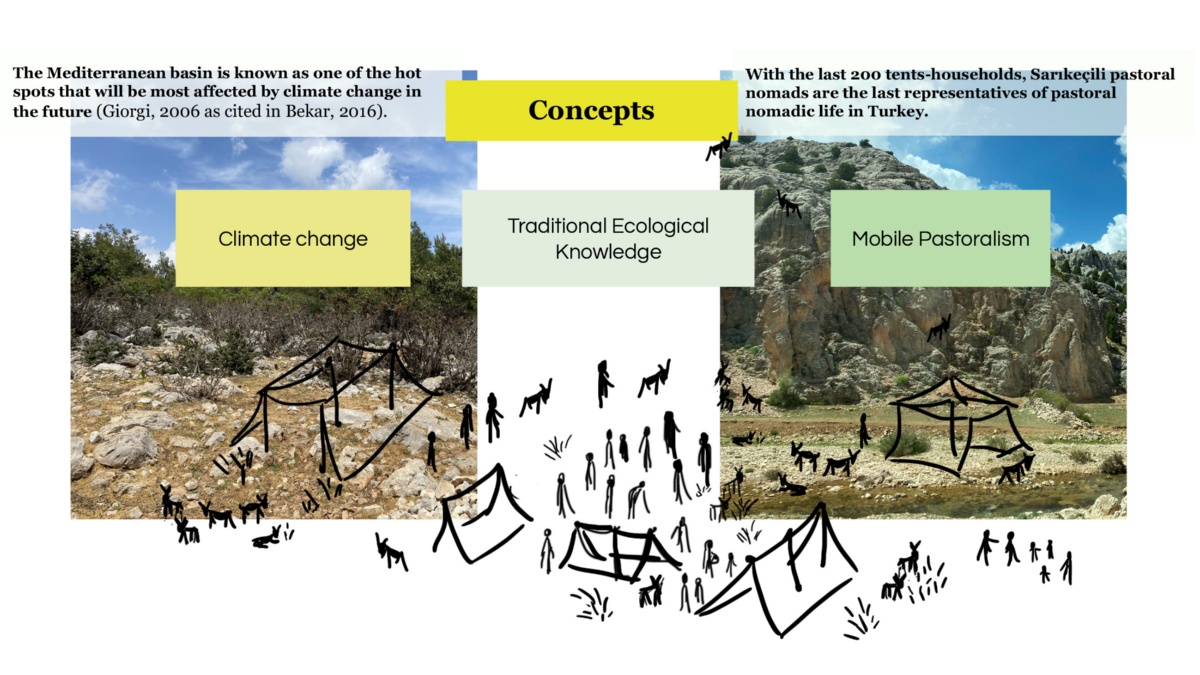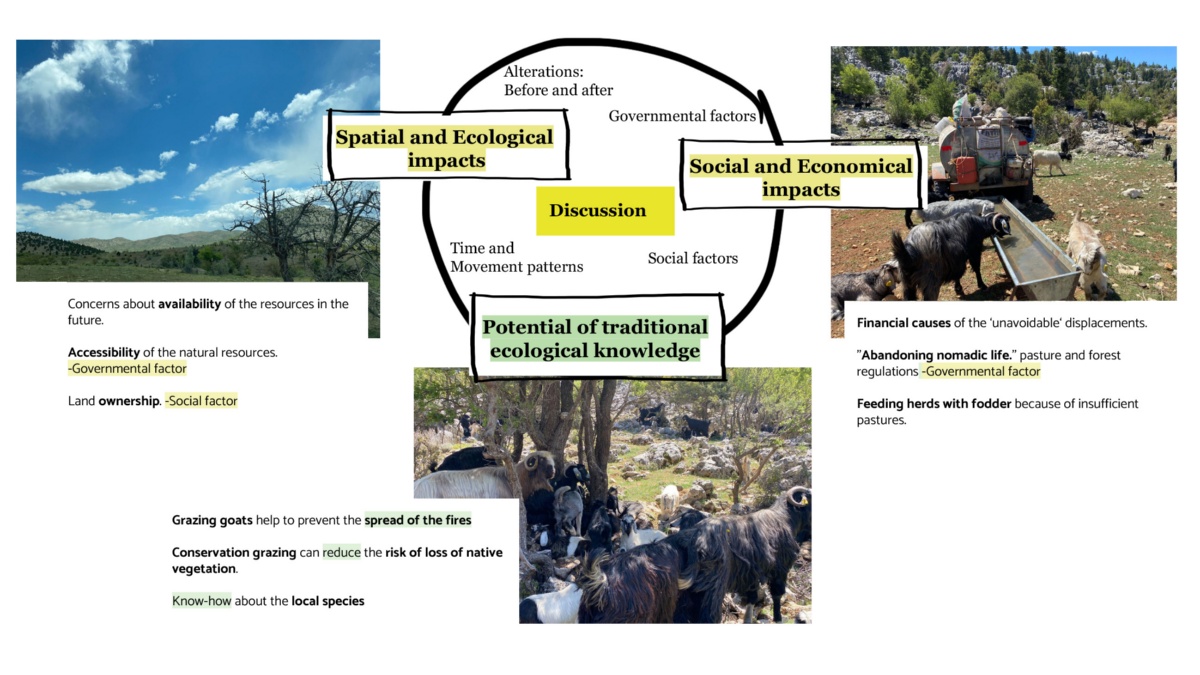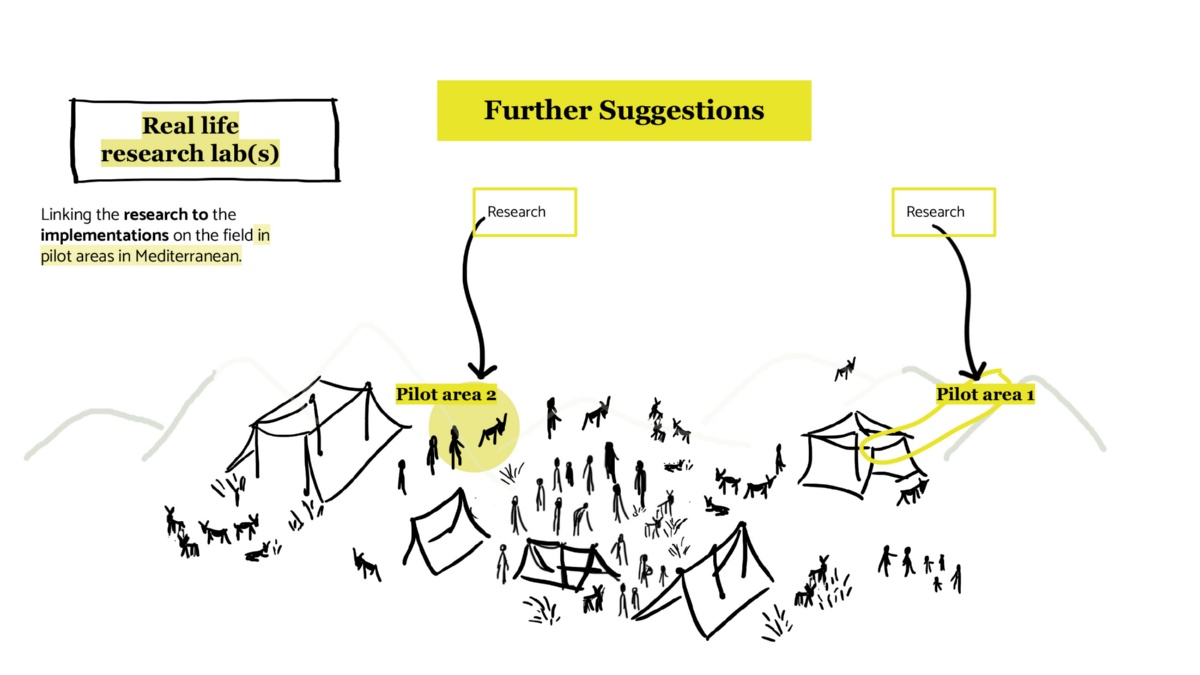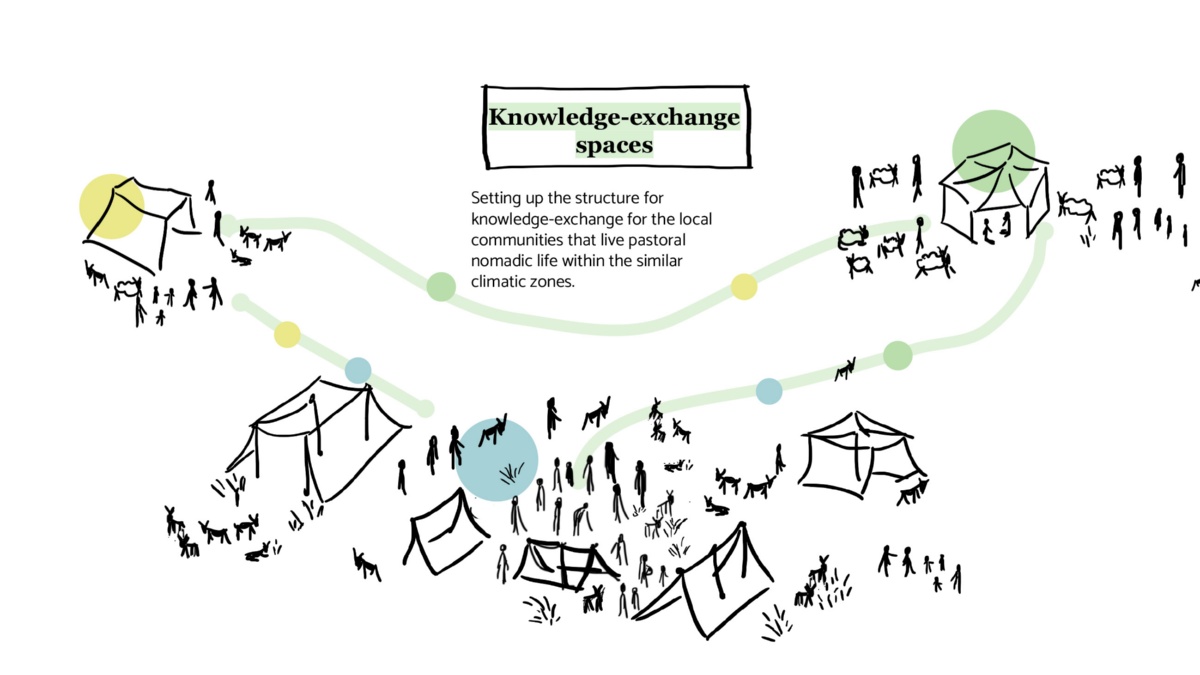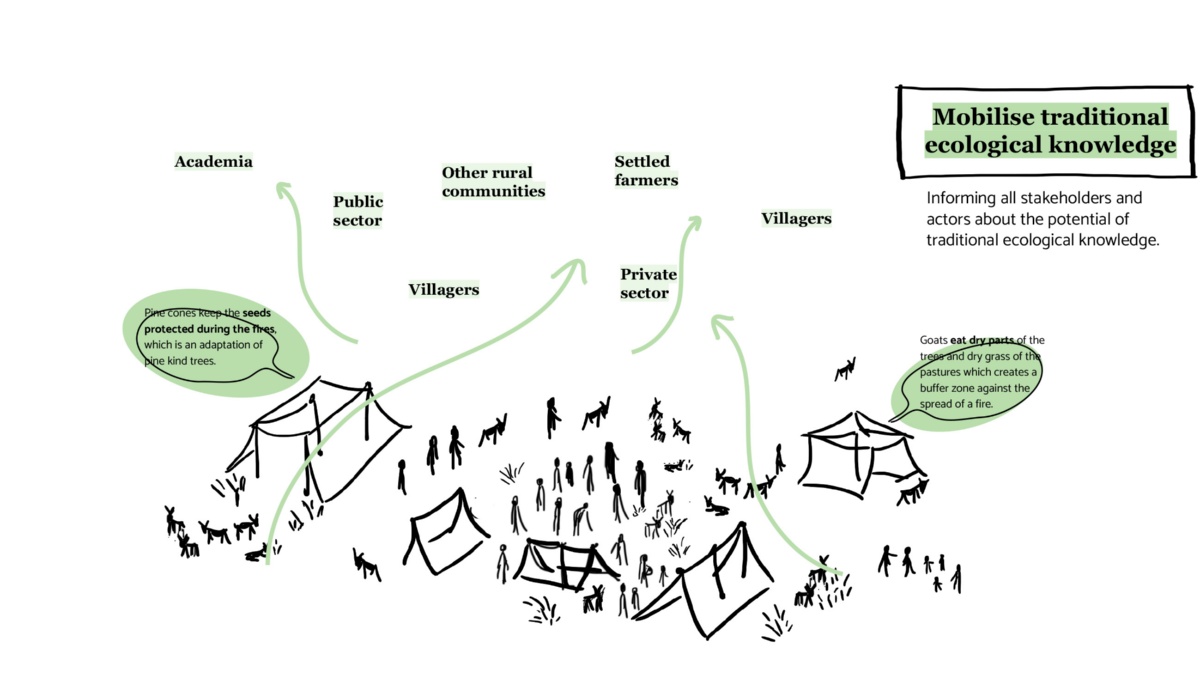The word, nomad in Turkish; Yörük derives from the verb yürü- (Yürümek in infinitive) which means to walk. Researchers discuss that the Yörük’s originated from Central Asia,and Sarıkeçili Yörükleri -Sarıkeçili nomads- are the last representatives of pastoral nomadic life in Turkey. They still walk together with their goats to pass the captivating landscapes, great forests of the central Mediterranean region in Turkey to find fresh pastures and water sources. Similar to other pastoral nomadic communities, Sarıkeçili pastoral nomads are experiencing increasing impacts of climate change, more than urban populations. The natural environment is home to mobile pastoralists, therefore Sarıkeçili pastoral nomads are highly exposed to these changes, both positive and negative, that occur in their homelands.
My overarching aim with this master thesis is to understand the effects of climate change on Sarıkeçili nomads life, and explore their traditional ecological knowledge, how they cope with the aftermath of the current impacts -focusing on spatial, social and ecological challenges-. All in all, I aimed to explore how traditional ecological knowledge could provide support in the mitigation of the negative impacts of climate change on a local level.
Majority of the data I analysed for my research is collected through indepth-interviews with 6 Sarıkeçili families and my personal observations during the field work. I started my analysis according to 4 categories I used during my interviews; starting with two generic categories to look at the broad picture through the changes. After analysing the research -both field work and literature review- by using a simple matrix with four challenge categories (Spatial, Ecological, Social and Economic challenges) and two stimulating factors (Governmental and Social factors), I found out that Spatial and Ecological changes are tied together as well as Social and Economic changes while all of them are catalised by governmental and social factors. It is important to highlight that throughout my field research, I found out that their accumulated traditional ecological knowledge has been their key to cope with the changing environment around them however with the governmental and social factors they are no longer able to apply their ecological knowledge as they used to. If I may give examples of the changes; There is a consensus among the families about the social and economic changes, that they can not live a happy and fulfilling life if they have to end their nomadic life and settle in one place as a consequence of climate change. Another change which came to a conclusion after the fieldwork is spatial and ecological changes. One can easily understand how space and ecological environment are interrelated in the context of pastoral nomadic communities. With drought and more frequent fires in the forests, fertile pastures and forests will be limited.
Even though Sarıkeçili’s have the capacity to cope with climate change impacts by using their traditional ecological knowledge which they have been accumulating throughout generations, they do need to overcome other obstacles in order to apply their knowledge.
Adaptive capacity of the pastoral nomad communities is approved with the applied ecological knowledge through generations. With the support of scientific research, benefits of traditional ecological knowledge of the indigenous and local communities could be enhanced. Finally, at the end of my research, I suggest three paths that could be taken in order to address the above mentioned challenges. Real-life research labs, Knowledge-exchange spaces and mobilising traditional ecological knowledge.


